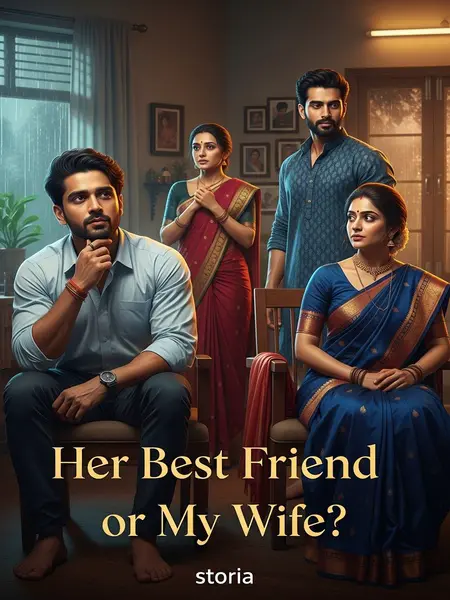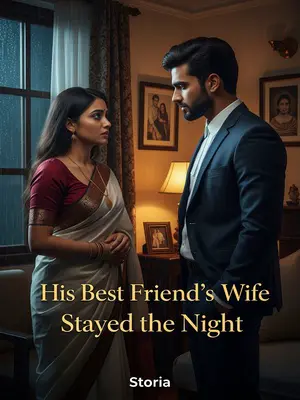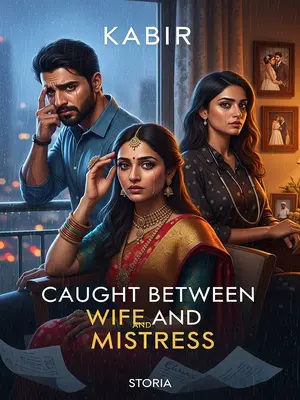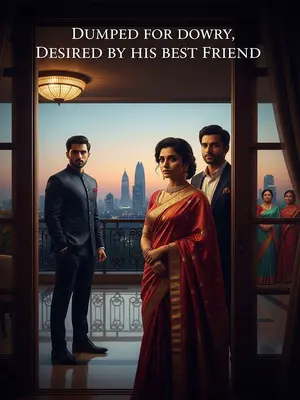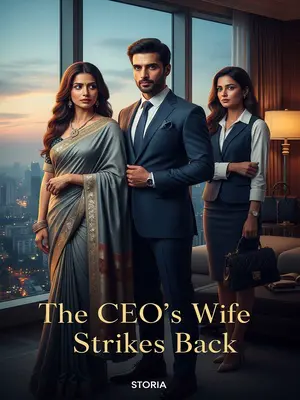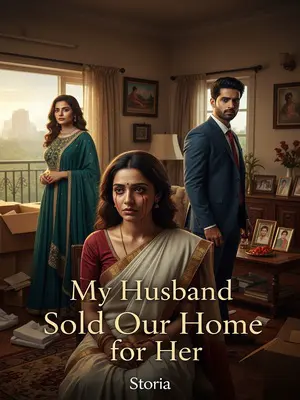Chapter 2: Cracks in the Foundation
At 4 a.m., the house was thick with silence, the only sound the ceiling fan slicing the humid air and the distant call of the sabziwala drifting up from the lane. Meera still hadn’t come home. The empty side of the bed felt colder than usual, making me acutely aware of her absence.
In the past, whenever this happened, I’d be consumed with rage, calling her again and again, pacing the living room in my banyan, phone in hand. Sometimes, in a fit of frustration, I’d even call Kabir. My anger would boil over, words ready to explode.
But tonight, there was only a dull calm. Maybe I’d finally run out of fight, or maybe the exhaustion of years had finally caught up with me. I sat at the dining table, absently tracing patterns on the plastic tablecloth, waiting for the first light of morning.
When she returned, Meera breezed in with a packet of hot samosas and a carton of Amul milk, the kitchen suddenly filled with the spicy aroma and the faint scent of her jasmine hair oil. She smiled, anklets tinkling as she walked in. “I was with Kabir last night. We just got carried away. I didn’t want to wake you, so I crashed elsewhere.”
She winked, stressing, “Separate beds, okay? It was a twin room.” Her head tilt was over-the-top, as if to say, ‘see, I’m innocent, okay?’ Tossing the milk carton on the table, she acted like the matter was settled.
Kabir had been her neighbour in Lucknow—the kind of friend everyone calls ‘childhood friend.’ Their mothers would gossip over adrak chai on the balcony, the families celebrating Holi and Diwali together, kids running wild, faces smeared with gulaal. Their bond went deeper than most could understand.
She always insists they’re just lifelong buddies, joking that even if she stood in front of him in her pyjamas, he wouldn’t even notice.
She’d laugh and say, “Kabir has seen me in oil-stained salwars, with half my hair chopped off—he’s more likely to tease me than stare.” Oblivious to how much it stung.
I’d seen her and Kabir roughhousing, her arm around his neck, him pinching her cheeks. At family functions, they’d do their ‘patented’ handshake or pull each other into selfies. Sometimes, Meera would drape her dupatta over his head for laughs. The aunties would giggle, “Hai, kitne pyaare lagte ho dono!” And I’d just stand there, clutching my tea, feeling out of place.
Every time, I’d pull Meera aside: “Meera, kuch toh soch. Log kya kahenge?”
At first, she’d try to reassure me, touching my arm, her eyes soft: “Don’t take tension, baba. You’re my husband. Kabir is just… Kabir. Bas.”
But soon, she’d grow impatient, biting her lip, blinking away frustration before snapping, “We’ve been together since we were kids. If we wanted to be together, what’s it got to do with you?” Her voice would rise, hands on hips, the same way she’d argue with an auto-wala.
Kabir would always stand nearby, hands in his pockets, saying with a smirk, “Bhaiya, you’re too uptight. Meera isn’t even a woman to me—she’s like my little sister. Would I think like that about my own sister? That would be sick, right?”
He’d laugh, scratching his head, acting like some sanskaari hero from a Star Plus serial. But I always caught the glint in his eye, as if he knew he’d won.
Looking at his smug face, I’d clench my fists, thinking, “He’s too smooth to be true.” But in front of Meera, I’d swallow my words.
There was a brief period when Meera and Kabir kept their distance. For a few weeks, the house was peaceful—even Chhaya, the maid, noticed: “Arre, Meera didi ghar pe hai roz, kya baat hai!”
She stayed home, asking me to massage her back, to cook for her, wanting all my attention.
She’d sprawl across the sofa, legs stretched out, demanding, “Arjun, ek chhota sa massage milega kya? My back is killing me!”
Every meal, she wanted five dishes—dal, sabzi, paneer, salad, raita. If I complained, she’d puff up her cheeks, pouting like a sulky child, refusing to eat unless I made lauki ki sabzi with extra ghee. The pressure cooker would whistle, sweat dripping down my face as I worked in the kitchen.
By the end, my kurta would be stained with haldi, my hands smelling of dhania and lehsun. But when I’d bring out the food, she’d grin and click photos on her phone.
She’d post my cooking on her WhatsApp Status: “Shout-out to my home chef!” with a dozen emojis, tagging me for all to see.
Kabir would comment: “Your Arjun really is a model househusband.” His words dripped with playful sarcasm. I could almost hear his teasing from the other end of the city.
Other friends chimed in: “No wonder you haven’t been going out lately—someone’s feeding you well.” Their sly jokes stung, their laughter echoing in the group chat.
There was something in those comments—too many winks and ‘LOL’s—that made me feel like I was missing the real joke.
Meera got upset: “You’re a grown man, why are you so sensitive? I show off a little love and you get upset. Fine, I won’t post about you in my Status anymore, okay?” Her hands flew up in the air, as if my frown had ruined her whole day. “Bas, ab toh kabhi kuch nahi daalungi about you!”
After a few rounds of this, it felt like I was always the one making a fuss, and Meera’s patience wore thin.
She’d sigh more often, spend more time on her phone, the laughter in the house slowly fading, replaced by a heavy, invisible wall between us.
Even when we sat together on the sofa, it felt like she was a thousand miles away, her gaze fixed on her phone or the window, searching for something I couldn’t offer.
One day, she waved her hand in front of my face, snapping her fingers, “Aye, dhyan kahan hai? Did you leave your brain at the office?”
Snapping out of it, I noticed her smudged kajal and wrinkled kurti. The exhaustion hit me, heavier than the Delhi heat in June.
She softened her voice, acting coy: “Honey, are you upset?” Her tone turned syrupy sweet, the way she used to talk to her father when asking for extra pocket money.
I said nothing. She took my hand, squeezing it, “Don’t be angry, okay? I’ll keep you company this afternoon. Oh, didn’t you want a new suit? Let’s go to the mall—I’ll buy it for you, okay?”
She gave me the puppy-dog look, as if an afternoon at the mall could patch up everything between us.
She was always like this—first a slap, then a sweet. She twisted me around her little finger, always sure I’d forgive her.
That afternoon, she dragged me to the mall, picking out my favourite brands, chatting nonstop, dismissing the salesgirl’s suggestions: “Only my Arjun knows what he likes, hai na?”
She picked out a charcoal grey checked suit—exactly my style. Sometimes I wondered if she knew me better than I knew myself.
When I came out of the trial room, she was on a video call, laughing and twirling, her phone angled for Kabir to see. “This one suits you so well—I spotted it right away,” she said, turning the phone to show me in the new suit.
Kabir chuckled: “So what? Are you going to buy it and bring it to me?”
She laughed, “That’s just a word away.” Their banter made me feel invisible, their world complete without me.
I quietly picked another suit and returned to the trial room, the echo of their laughter clashing with the soft mall music. I took my time, needing to catch my breath.
When I paid for my suit, she was still on video call with Kabir. I just left on my own.
For the first time, I didn’t wait for her. I just let the crowd swallow me up, wondering if she’d even notice.
Meera chased after me, breathless, “Why didn’t you wait for me? Are you angry again? Is it really necessary?”
She almost stamped her foot, half-whining, half-commanding. This time, I just smiled, my voice steady: “No, I’m not angry.”
It was true. Somewhere along the way, anger had faded into resignation. I walked ahead, hands in my pockets, feeling strangely lighter.
